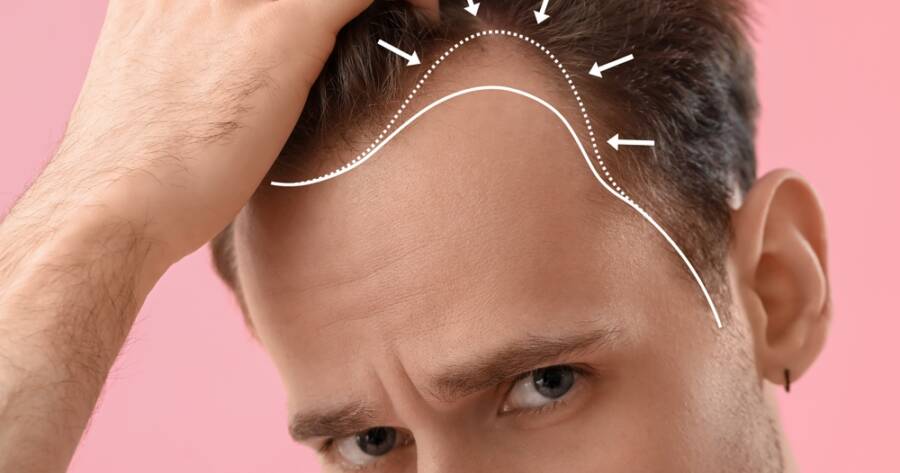Hair loss can be a distressing experience, affecting both appearance and self-esteem. Understanding the science behind hair loss and the mechanisms of hair growth is a crucial step for anyone seeking effective remedies. Recent advancements in research have offered new insights and potential solutions to this age-old issue. Explore the latest scientific findings and possible interventions, equipping you with information to navigate the vast and evolving landscape of hair care.
The Biology of Hair Growth
Hair growth occurs in a cycle comprising three distinct phases: anagen, catagen, and telogen. The anagen phase is the active growth stage, lasting several years. During this period, hair follicles are busy producing new hair cells. The body naturally sheds hair during the catagen phase, a transitional stage lasting a few weeks. The telogen phase then follows, where hair follicles rest before re-entering the growth phase. Understanding this cycle is vital, as disruptions can lead to various types of hair loss.
Multiple factors, including genetics, hormones, and environmental exposures, can influence these phases. For instance, androgens, hormones commonly linked to hair growth, can shorten the anagen phase, potentially leading to conditions like androgenetic alopecia, widely known as male or female pattern baldness.
Recent Advances in Hair Loss Research
Scientific research in recent years has expanded our understanding of hair loss, identifying potential new avenues for treatment. A growing body of evidence suggests that stem cells may play a critical role in hair follicle regeneration. Recent studies are exploring how stem cell therapy might help reactivate dormant hair follicles, offering a glimmer of hope for future solutions.
Genetic research has also made headways, with studies pinpointing specific genes that could influence hair growth patterns. These findings might lead to targeted therapies that address the genetic causes of hair loss. Additionally, advancements in the study of the skin’s microbiome—unique populations of micro-organisms—hint that maintaining a balanced scalp environment may be crucial for healthy hair growth.
Exploring Current Hair Loss Treatments
Today’s market offers a spectrum of treatments, from pharmacological interventions to advanced therapeutic solutions. Common approaches include over-the-counter topical solutions containing minoxidil, which may help stimulate hair follicles and prolong the anagen phase in some individuals. Another medication, finasteride, typically requires a prescription and works by reducing levels of DHT, a hormone linked to hair loss.
More innovative treatments are also gaining traction. Low-level laser therapy might stimulate hair follicles through a process akin to red light therapy, and platelet-rich plasma (PRP) treatments are being studied for their potential to enhance hair density by utilizing the body’s own growth factors.
However, it is important to consider that not all treatments work universally, and consulting with healthcare or dermatology professionals is often advisable before proceeding with any hair loss treatment plan.
Lifestyle and Nutritional Considerations
While scientific research forms the basis for many treatments, lifestyle factors equally contribute to hair health. Stress management, for instance, plays a role in preventing hair loss, as stress might disrupt the hair growth cycle. Exercise, meditation, and maintaining work-life balance are potential strategies to reduce stress levels.
Nutrition also carries weight in influencing hair growth. A balanced diet rich in iron, biotin, vitamins D and E, and essential fatty acids, could support healthier hair. Foods like leafy greens, nuts, eggs, and fish can potentially complement a hair-friendly diet. In addition, protecting hair from environmental factors such as excessive heat styling or chemical treatments might preserve its strength and resilience. Using protective hair care products can further contribute to minimizing damage.
Emerging Solutions on the Horizon
As research progresses, exciting prospects for hair loss treatment continue to emerge. Gene therapy and CRISPR gene-editing technology are being explored as potential pathways for hair regeneration, offering a tailored approach that might influence specific genetic causes of hair loss.
Moreover, advancements in biologics and regenerative medicine hint at the promising future of bioengineered hair follicles, which could lead to new methods of cultivating hair directly from the skin. These scientific innovations require further testing and development but represent the staggering potential of the next frontier in hair loss solutions.
Learn More Today!
The science behind hair loss and growth is intricate and multi-faceted, combining genetic, hormonal, and environmental factors. As research continues to evolve, a broader array of scientifically grounded treatments is becoming available, each with unique mechanisms and efficacy.
Understanding the potential causes of hair loss and the solutions rooted in scientific research allows individuals to make informed decisions about their hair care strategies. Guided by these insights, consulting healthcare professionals and exploring lifestyle adjustments may enhance the pursuit of healthy hair growth and contribute to improved overall well-being.





